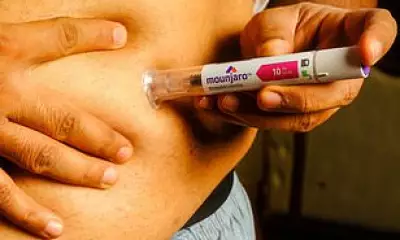
From Crisis to Advocacy: A Model's Bipolar Journey
Model and actress Rosie Viva has become one of the most prominent voices for bipolar awareness in the UK, working extensively with charity Bipolar UK and sharing her experience through books, documentaries and their new film 'Maybe It's Bipolar'. However, the 29-year-old admits her path to acceptance was anything but straightforward.
The Hardest Year of Acceptance
"Accepting my diagnosis was the hardest year of my life," Rosie revealed exclusively at the premiere of her new short film. "I didn't want a life with it because what I knew about bipolar at that moment was hospital and psychosis and losing everything."
Her understanding of the illness was so extreme that she feared she might never work again or reclaim her life. It was only through speaking publicly and working with Bipolar UK that she discovered "there is a lighter way to live with it."
The Day That Changed Everything
Rosie received her diagnosis at age 22 following hospitalisation after a severe psychotic episode. The events of that single day were dramatic: she shoplifted, kissed a complete stranger in a café, bought breakfast for everyone at McDonald's and brought Stansted Airport to a standstill by triggering a fire alarm after leaping through the baggage drop-off area.
"We speak a lot as a charity about how the diagnosis can take 9.5 years and for a lot of people you actually reach crisis when you get your diagnosis," she explained. Rosie was in full psychosis at Ealing Hospital and had been sectioned under the Mental Health Act. "There wasn't one moment I remember coherently, I was so psychotic that I couldn't understand English."
Subtle Signs of Psychosis
The actress experienced disturbing hallucinations that began subtly. "The day I was sectioned, I was on my Citymapper and the only thing which changed first thing in the morning was that the bus and the tube emojis, those all disappeared, and a man just popped up with sort of a rocket on his back," she recalled.
"It's really small, that's where it's really horrible, because you know you've gone crazy when it's subtle. It's so funny to joke about and look back on, but it's actually so terrifying when your eyesight, your touch, all these things you've relied on every day to get up and just do your thing become delusional."
Several months before her diagnosis, a doctor had suggested she might have bipolar disorder, but Rosie was completely against the idea. "I took it as a huge offence that someone thought I had bipolar because it felt like I was being accused of something wrong."
Dispelling Misconceptions and Finding Hope
One major misconception Rosie wants to challenge is that people with bipolar cannot be good people. She argues that having such a big mood spectrum actually makes a person more "empathetic and understanding of human emotion".
She encourages anyone experiencing potential bipolar symptoms to seek help immediately. "It's always going to reach a crisis point. It's an illness, which is so mighty and difficult to control. For many people who experience second and third episodes, it's when they reduce their medication and believe they have some control over it."
Rosie emphasised that seeking help early means "you're going to be able to get your life back on track much sooner."
The Long Road to Management
It took several months after hospitalisation for Rosie to even begin processing her type one bipolar diagnosis, and several years before she built confidence in managing it.
"Even in 2023, when I would have a low and the suicidal thoughts, I would still slightly believe it because my confidence wasn't there yet," she admitted. "I was actually worried that it wouldn't be something I can manage for life."
Now aged 29, she has developed coping strategies. "As you age, you do see yourself recover from these dips. Now, when I slip into a low and I'm extremely suicidal, I know that it's an intrusive thought which will pass."
Growing Up Quickly With Bipolar
Rosie has become particularly committed to supporting those diagnosed young, understanding the unique challenges they face. "When you're (diagnosed at) 22, you then can't really drink, you can't do drugs, you have to go to bed on time. Those things mean that your friendships change a lot."
She noted that people often put you in a "boring" bracket, but by 29, "people want to be your friend because of who you are, and most people aren't making loads of plans around drinking anymore."
"A bipolar diagnosis just forces you to grow up quite quickly, and that's not necessarily a bad thing," she reflected. "Everything gets easier with age."
According to Bipolar UK, over half of people in the UK with bipolar disorder remain undiagnosed. The charity's latest campaign aims to raise awareness of lesser-known symptoms and promote their free online test that can help people assess whether they might have the condition.






